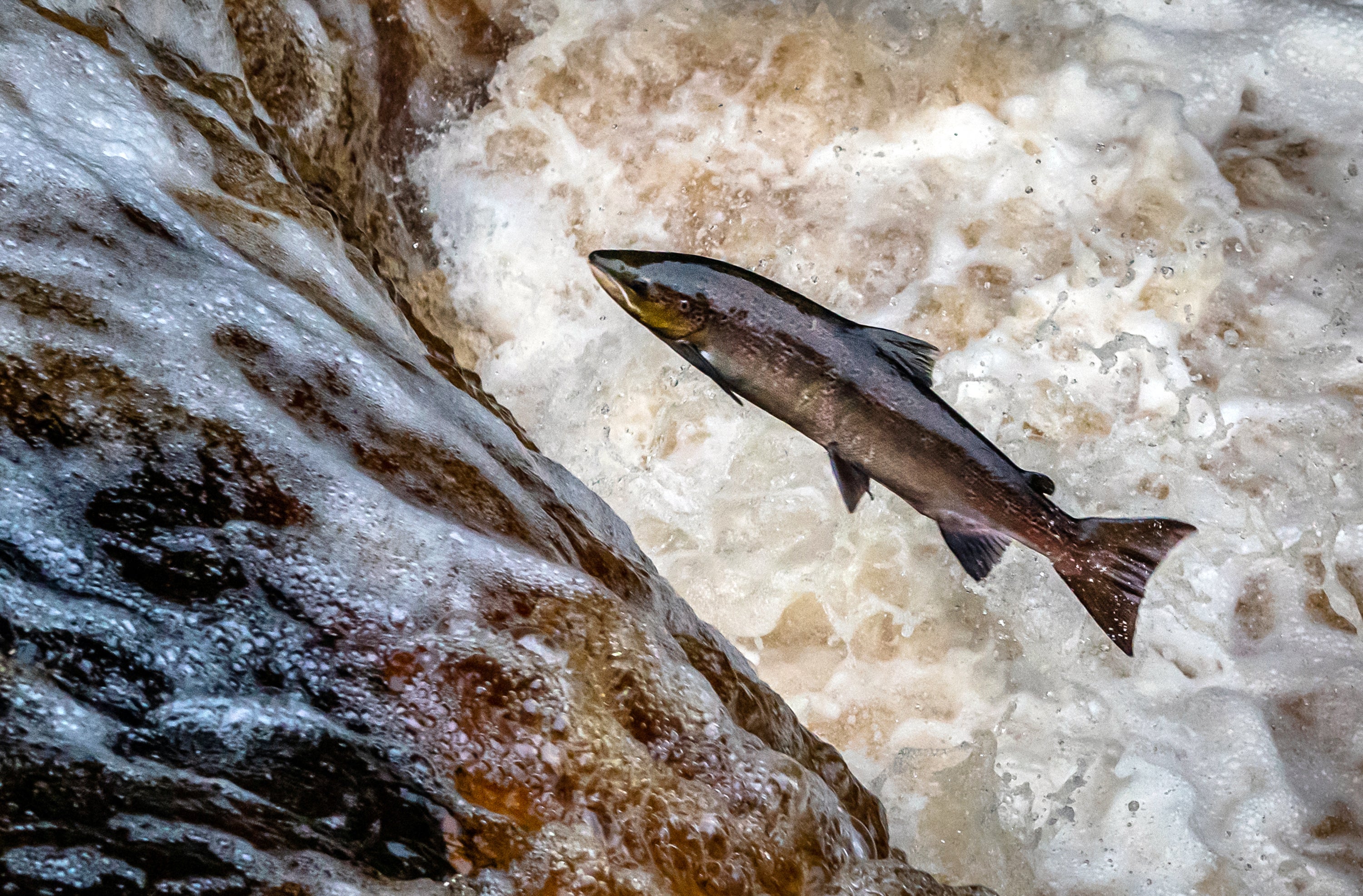Wild salmon reaching crisis point in rivers, Environment Agency warns
The fish are facing a range of threats, including climate change, pollution, and weirs and dams that stop them travelling upstream to breed.

Your support helps us to tell the story
From reproductive rights to climate change to Big Tech, The Independent is on the ground when the story is developing. Whether it's investigating the financials of Elon Musk's pro-Trump PAC or producing our latest documentary, 'The A Word', which shines a light on the American women fighting for reproductive rights, we know how important it is to parse out the facts from the messaging.
At such a critical moment in US history, we need reporters on the ground. Your donation allows us to keep sending journalists to speak to both sides of the story.
The Independent is trusted by Americans across the entire political spectrum. And unlike many other quality news outlets, we choose not to lock Americans out of our reporting and analysis with paywalls. We believe quality journalism should be available to everyone, paid for by those who can afford it.
Your support makes all the difference.Wild salmon stocks are reaching crisis point and could be lost from English rivers without urgent action to save them, the Environment Agency has warned.
Stocks of wild Atlantic salmon, which traditionally breed in UK rivers, have fallen to their lowest level on record, the latest assessment shows.
Some 37 of the 42 salmon rivers in England are now categorised as “at risk” – which means stocks have fallen below sustainable levels – or “probably at risk”.
And all 22 principal salmon rivers in Wales are at risk or probably at risk, the report from the Centre for Environment, Fisheries and Aquaculture Science, the Environment Agency and Natural Resources Wales shows.
Without urgent action wild Atlantic salmon could be lost from our rivers in our lifetimes
Atlantic salmon, which travel between the sea and rivers to breed, are a classic part of the UK’s river life, but climate change, which is leading to rising sea and river temperatures, as well as overfishing, is hitting stocks globally.
Poor water quality in rivers and estuaries can hit their lifecycle, and barriers such as dams and weirs stop them travelling upstream to suitable river breeding grounds, experts warn.
Only one river in England – the Tyne in the North East – is classified as not at risk, and has improved due to better water quality in the estuary and action against barriers to migration.
And on the River Don in Yorkshire, action to improve fish passes and initiatives to restore river habitat have allowed salmon to return.
Kevin Austin, deputy director for agriculture, fisheries and the natural environment for the Environment Agency, said: “Today’s assessment for England is of great concern, and without urgent action wild Atlantic salmon could be lost from our rivers in our lifetimes.
“We have seen some real successes through our work with partners, particularly on the River Don and Tyne, but more much progress is needed.
“As the climate emergency becomes more acute, we need co-ordinated action between governments, partners and industry to enable stocks to stabilise and recover to sustainable levels.”
The Environment Agency and partners have a “salmon five-point plan” to improve marine survival, further reduce catches by nets and rods, remove barriers to migration and enhance natural habitat, safeguard sufficient flows, and maximise spawning success by improving water quality.
In 2019, the agency closed all salmon net fisheries in England until at least 2029, with a catch and release rate of 95% being delivered in rod fisheries, with further options being considered to implement a 100% release rate in all remaining rivers categorised as being “at risk”.
The Environment Agency has also improved 19 fish passes in the last year, giving better access for salmon to the Severn, Ribble, Camel, Tyne and Test rivers, along with a new fish pass at Diglis Weir on the River Severn.
Some 53 schemes in 2021 aimed to improve water quality and river flows, which will benefit salmon, while there are 50 new agricultural officers to work with farmers to tackle pollution in water courses, the agency said.
And it is calling for tougher fines and prison sentences for those responsible for serious and deliberate pollution that damages water quality and river life.